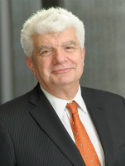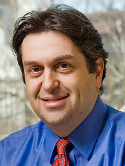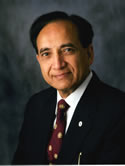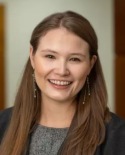Defining the genomic landscape of diffuse sclerosing papillary thyroid carcinoma: Prognostic implications of RET fusions Journal Article
| Authors: | Scholfield, D. W.; Fitzgerald, C. W. R.; Boe, L. A.; Eagan, A.; Levyn, H.; Xu, B.; Tuttle, R. M.; Fagin, J. A.; Shaha, A. R.; Shah, J. P.; Wong, R. J.; Patel, S. G.; Ghossein, R.; Ganly, I. |
| Article Title: | Defining the genomic landscape of diffuse sclerosing papillary thyroid carcinoma: Prognostic implications of RET fusions |
| Abstract: | Background: Diffuse sclerosing papillary thyroid carcinoma (DSPTC) is an aggressive histopathologic subtype of papillary thyroid carcinoma. Correlation between genotype and phenotype has not been comprehensively described. This study aimed to describe the genomic landscape of DSPTC comprehensively using next-generation sequencing (NGS), analyze the prognostic implications of different mutations, and identify potential molecular treatment targets. Methods: Tumor tissue was available for 41 DSPTC patients treated at Memorial Sloan Kettering Cancer Center between 2004 and 2021. After DNA extraction, NGS was performed using the Memorial Sloan Kettering Integrated Mutation Profiling of Actionable Cancer Targets platform, which sequences 505 critical cancer genes. Clinicopathologic characteristics were compared using the chi-square test. The Kaplan-Meier method and log-rank statistics were used to compare outcomes. Results: The most common mutation was RET fusion, occurring in 32% (13/41) of the patients. Other oncologic drivers occurred in 68% (28/41) of the patients, including 8 BRAFV600E mutations (20%) and 4 USP8 mutations (10%), which have not been described in thyroid malignancy previously. Patients experienced RET fusion-positive tumors at a younger age than other drivers, with more aggressive histopathologic features and more advanced T stage (p = 0.019). Patients who were RET fusion-positive had a significantly poorer 5-year recurrence-free survival probability than those with other drivers (46% vs 84%; p = 0.003; median follow-up period, 45 months). In multivariable analysis, RET fusion was the only independent risk factor for recurrence (hazard ratio [HR], 7.69; p = 0.017). Conclusion: Gene-sequencing should be strongly considered for recurrent DSPTC due to significant prognostic and treatment implications of RET fusion identification. The novel finding of USP8 mutation in DSPTC requires further investigation into its potential as a driver mutation. © Society of Surgical Oncology 2024. |
| Keywords: | adolescent; adult; child; controlled study; human tissue; aged; middle aged; survival rate; young adult; gene mutation; gene sequence; major clinical study; genetics; mutation; histopathology; cancer staging; follow up; follow-up studies; phenotype; cohort analysis; genotype; pathology; tumor marker; risk factor; oncogene proteins, fusion; genomics; surgery; thyroid neoplasms; dna extraction; endosomal sorting complexes required for transport; thyroid papillary carcinoma; protein ret; ret protein, human; proto-oncogene proteins c-ret; b raf kinase; thyroid tumor; proto-oncogene proteins b-raf; braf protein, human; ubiquitin thiolesterase; recurrence free survival; fusion protein; molecular therapy; escrt protein; cancer prognosis; high throughput sequencing; high-throughput nucleotide sequencing; humans; prognosis; human; male; female; article; biomarkers, tumor; thyroid cancer, papillary; oncogene fusion protein |
| Journal Title: | Annals of Surgical Oncology |
| Volume: | 31 |
| Issue: | 9 |
| ISSN: | 1068-9265 |
| Publisher: | Springer |
| Date Published: | 2024-09-01 |
| Start Page: | 5525 |
| End Page: | 5536 |
| Language: | English |
| DOI: | 10.1245/s10434-024-15500-9 |
| PUBMED: | 38847983 |
| PROVIDER: | scopus |
| PMCID: | PMC12416437 |
| DOI/URL: | |
| Notes: | The MSK Cancer Center Support Grant (P30 CA008748) is acknowledged in the PubMed record and PDF. Corresponding MSK author is Ian Ganly -- Source: Scopus |
Altmetric
Citation Impact
BMJ Impact Analytics
MSK Authors
Related MSK Work















